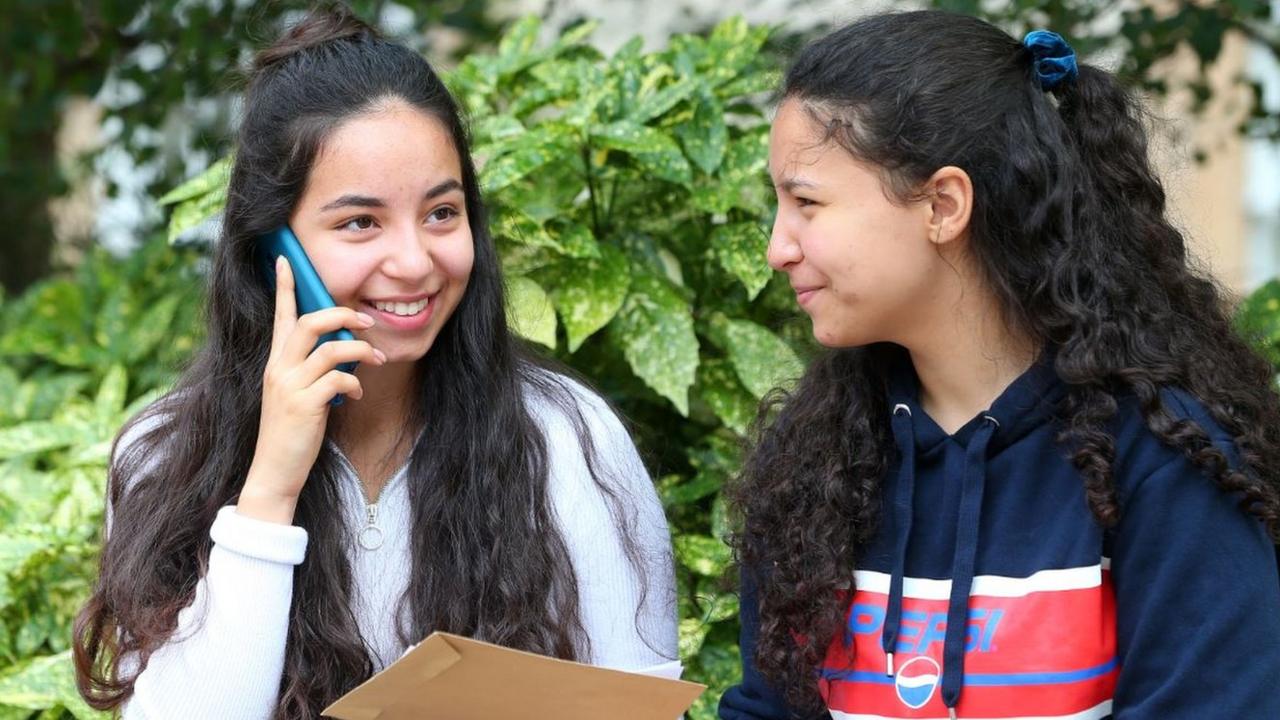A-level results: Record rate of top grades for NI students
- Published
- comments
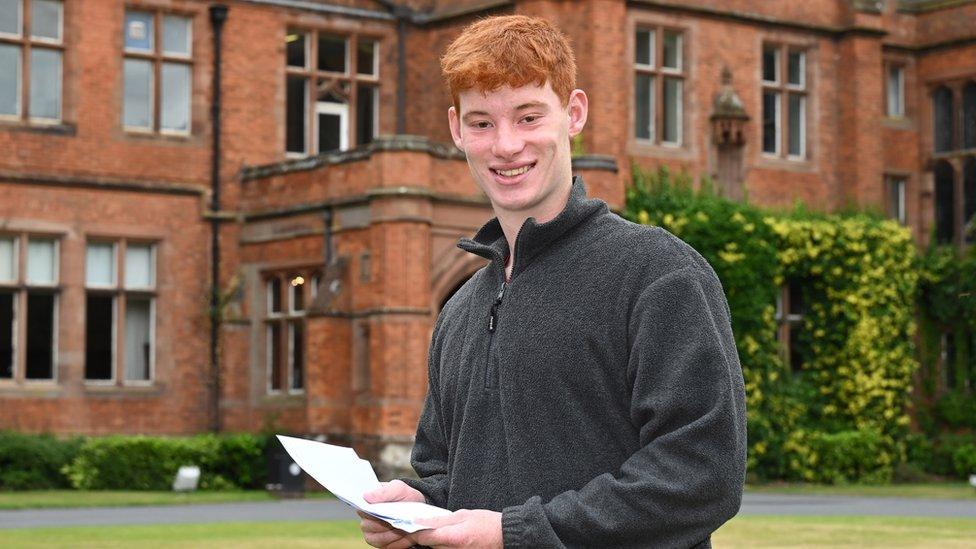
Cameron Beattie from Campbell College in east Belfast got three A/A* grades
More than half of A-level entries in Northern Ireland have been awarded top A* and A grades.
About 25,000 pupils received their A-level and AS-level results this morning.
Almost 51% of A-level entries were awarded A* or A grades, a record and a rise from about 45% in 2020.
Some students also received their BTec results on Tuesday - for many, that has become a path into university.
As formal exams were cancelled for a second year due to the coronavirus pandemic, schools calculated the grades to be awarded to pupils.
Education Minister Michelle McIlveen praised young people's "incredible resilience", acknowledging the exceptional circumstances they had faced over the past year.
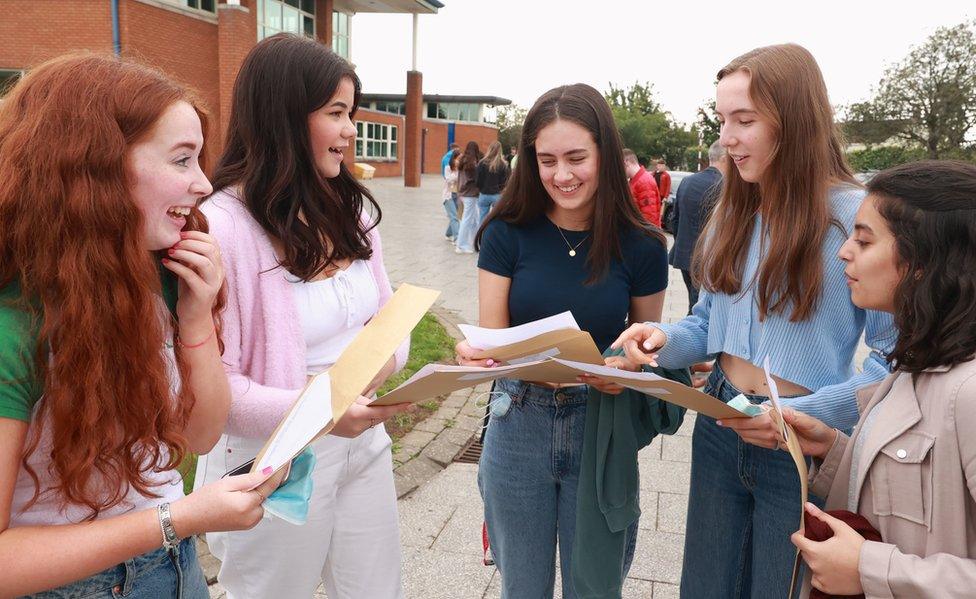
Pupils at Regent House School in Newtownards met up to get their results
"Our young people have demonstrated a determination not to let this pandemic put their lives on hold," she said.
"They have been awarded qualifications which reflect their hard work and will enable them to move forward confidently with their future plans."
The vast majority of AS and A-level entries in Northern Ireland are made through the Council for the Curriculum, Examinations and Assessment (CCEA) exams board.
However, some pupils take some A-levels through English exam boards.
There had previously been a significant rise in the proportion of A-level entries to CCEA awarded top grades in 2020.
In 2020, after the change in how results were awarded, 14.5% of A-level entries through CCEA achieved the top A* grade compared with 8.9% in 2019.
According to CCEA, that has risen to 15.8% of entries in 2021.
A-level results: 'I couldn't believe my grades'
Almost 45% of A-level entries to CCEA in 2020 were awarded A* or A grades compared with 32.2% in 2019.
That has risen to 50.8% in 2021.
Across Northern Ireland, England and Wales as a whole almost 45% of A-levels entries received A* or A grades.
Pupils in Scotland take Highers and they also received results this morning and some students in Northern Ireland also receive their BTEC results.
Alana Cahoon from Portadown, County Armagh, said she was "so relieved and extremely grateful" after receiving three Bs at A-level.
The 18-year-old, who is a member of youth-led charity Pure Mental NI, said it was important that fellow students remembered to take care of their mental health on results day.
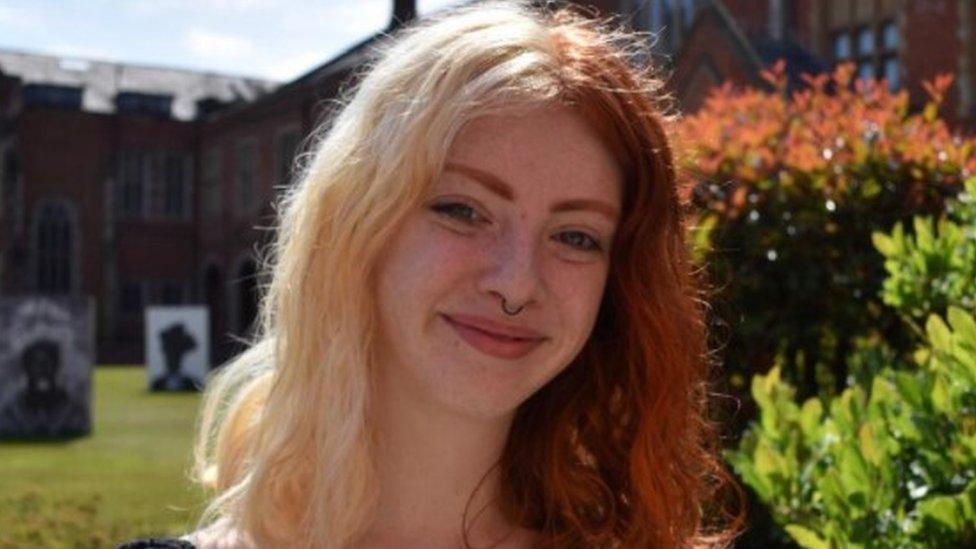
Alana Cahoon from Portadown is taking a gap year and will study politics and journalism in Glasgow next year
"It's important not to compare yourself to other people, don't compare yourself to what you see on your Facebook feed and Instagram feeds, Ms Cahoon said.
"It's ok if you didn't get what you wanted, everyone has their own path."
'Delighted to welcome you'
Prof Paul Seawright, deputy vice-chancellor of Ulster University, told BBC News NI: "We have over 5,000 places available across four campuses... more than we've ever had.
"If you meet the conditions of your offer the university is obliged to take you and we'll be delighted to welcome you."
Professor David Jones, pro-vice chancellor for education and students at Queens University Belfast, said: "What we really want is to make sure that we can get as many people in as wish to come."
He said there were opportunities not only at Northern Ireland's universities but also by entering the further education sector and moving to university through that route.
Further education colleges in Northern Ireland estimate that at least 60% of those receiving BTecs go on to further study at college or university.
Brian Doran, principal of Southern Regional College, said: "Whatever happens with offers today, it is really important that students understand the many options they have to continue to further study, particularly with the amount of higher education routes available to them at the six further education colleges, through foundation degrees, Higher National Diplomas and Higher Level Apprenticeships.
"This year, colleges and universities are working closely together to make sure students are signposted towards these alternative routes."
Ellen Fearon, the president of the National Union of Students and Union of Students in Ireland (NUS-USI), said everyone receiving results should feel proud of themselves.
She said the government and the education sector had to make sure the necessary places were made available at universities and colleges to accommodate new students.
"Students have done their part and it's now on the sector to do theirs," she said.
Limavady High School principal Darren Mornin said every pupils should be congratulated after what had been an incredibly difficult 18 months.
"There has obviously been that disruption to face-to-face teaching so they most definitely will have been worried," he said.
"The results that they are getting today - especially from a Limavady High School point of view - have all been fantastic and I am just so proud of them all."
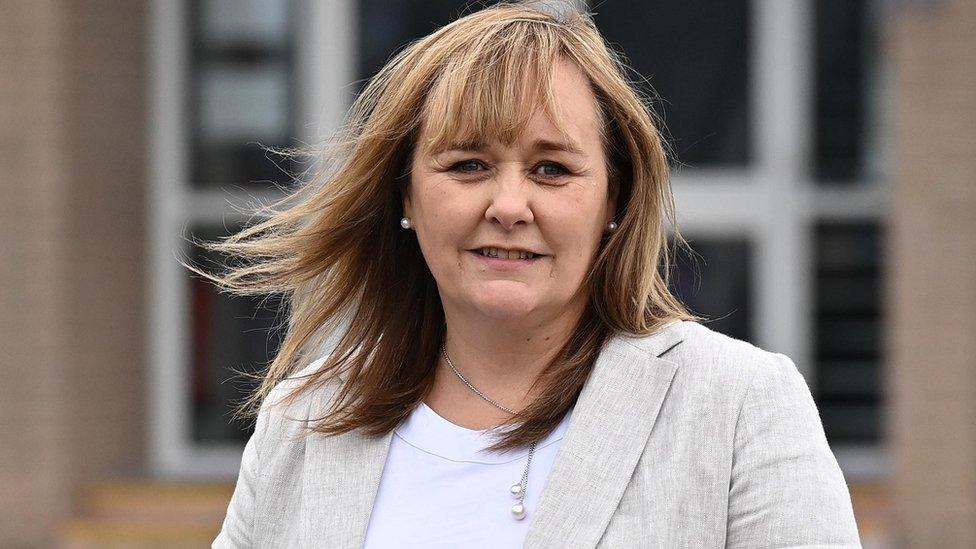
Education Minister Michelle McIlveen congratulated students on their results
Meanwhile, at AS-level in Northern Ireland, almost three-quarters of entries (73.9%) received the top A or B grades.
However, those AS results will not count towards a pupil's A-level grade in 2022.
Evidence for samples of results calculated by schools has been checked by exam boards, including CCEA in Northern Ireland.
'Fair reflection of pupils' effort'
A pupil can appeal their result if they are unhappy with it, with some appeals classed as "priority" if a pupil's place on a higher education course depends on a change to their results.
Pupils can appeal if they think an "unreasonable academic judgement" was made by their school but CCEA will only change a grade if they decide it does not match the evidence provided by the school.
The rise in results will inevitably spark a debate about grade inflation compared to years when pupils sit exams at the end of their course.
But the head of England's exam regulator Ofqual has said that grades are a fair reflection of the efforts pupils have made.
Simon Lebus said teacher assessments give a "much more accurate reflection" of what students can achieve.
Pupils awaiting GCSE results will receive them on Thursday.
CCEA will operate a results helpline from Tuesday until Friday 20 August on 028 9026 1220.
Formal GCSE, AS and A-level exams are expected to take place again in the 2021-2022 school year.
Related topics
- Published6 August 2021
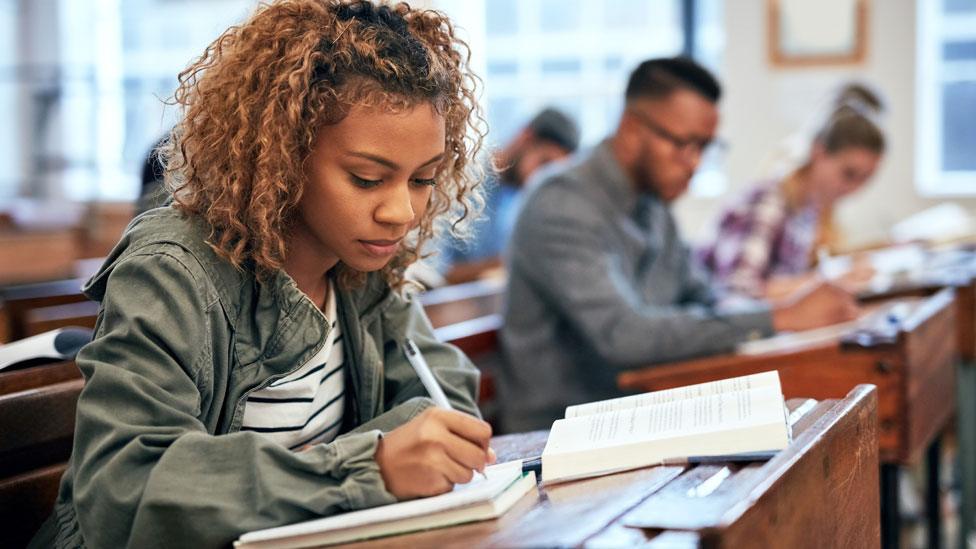
- Published17 May 2021
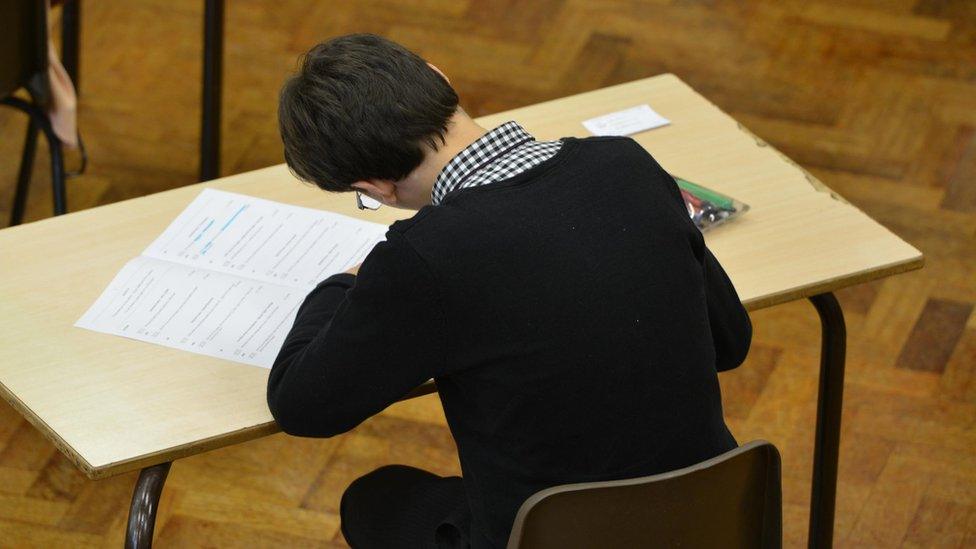
- Published2 February 2021

- Published13 August 2020
